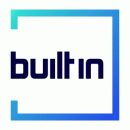If you’re looking for your next opportunity in tech, chances are your journey will begin on a job board. But these platforms do so much more than just list open roles — they’re powerful career tools, offering everything from AI-powered job matching to in-depth salary insights to tools that automate the application process altogether.
Whether you’re a recent college grad eyeing that cool new startup, a seasoned pro gunning for a position at a Fortune 500 company or a freelancer looking for your next gig, the right job board can help you find a role that fits your skills, goals and lifestyle. Here are several we think are worth bookmarking.
Built In hosts hundreds of thousands of tech job listings from all over the world, with filters for location, industry, job category, experience level, work type (remote, hybrid, in-person) and even company size. Each listing is paired with an in-depth profile that showcases the individual company’s unique benefits, office details, tech stacks and overall culture as well. Built In also offers various tools to simplify the job search process, including an application tracker, salary insights, an AI-powered job matcher and an AI assistant that can auto-fill applications.
Dice is one of the oldest and most established job boards focused exclusively on tech professionals. It features listings across a wide range of roles — software engineering, data science, cybersecurity and product management, to name a few — and offers resources like expert-written advice columns, resume assistance and a platform specifically dedicated to establishing a career in artificial intelligence. Dice also regularly hosts virtual career events to connect job seekers with recruiters.
Glassdoor is perhaps best known for its employee-written reviews and salary information, providing job seekers across various industries with valuable insight into a company’s culture, compensation, benefits and working conditions before they apply. The job board itself is quite robust, with millions of roles that candidates can filter based on experience level, desired compensation and more. The site also offers a community forum where professionals can anonymously share industry advice, ask questions and discuss workplace experiences.
Techfetch connects tech professionals with both contract and full-time positions in the United States, with a particular focus on IT and other specialized technical positions. Its Skill Score feature lets candidates assess their expertise across hundreds of skills and dozens of coding languages, making it easier for recruiters to find talent with niche expertise in areas like cloud engineering, enterprise software and artificial intelligence.
Although it is better known as a go-to forum for developers to share knowledge and troubleshoot code, Stack Overflow also hosts a job board focused primarily on software engineering and development roles. Aggregated by Indeed, the listings span the United States, European Union and United Kingdom, covering a wide range of industries, experience levels and technical capabilities.
Y Combinator, the accelerator behind tech giants like Airbnb, Stripe, Dropbox and Coinbase, runs a job board featuring open roles at hundreds of its portfolio startups. Candidates can browse for jobs in fields like software engineering, UX design and product management, and connect directly with founders and early team members. For those looking to build something new themselves, Y Combinator also offers a co-founder matching platform where entrepreneurs can pitch their ideas and connect with one another.
ZipRecruiter uses artificial intelligence to match job seekers with all kinds of roles that align with their experience and preferences. Its career adviser chatbot, Phil, distributes candidates’ resumes to hundreds of open positions in a single click, and alerts them when a job they’d be a good match for comes up. The platform also provides a dashboard where users can track the progress of their applications.
TrueUp aggregates hundreds of thousands of tech job postings from across the internet, offering detailed insights and visualizations that analyze company hiring trends, team sizes and role types. Users can use TrueUp to explore open roles based on things like headcount, funding stage and growth rates, making it a helpful tool for data-driven job seekers looking to work at high-growth startups.
Wellfound (formerly AngelList Talent) specializes in startups, listing thousands of open tech roles at companies ranging from early-stage ventures to unicorns. Similar to other job boards, users can apply to multiple jobs at once using the information on their profiles, and filter their search based on things like salary, industry and title. However, it also allows them to connect with founders and hiring managers directly, and provides information about the company’s investors and funding stage.
With more than 1 billion global users, LinkedIn is the largest professional networking site in the world, providing a space where everyone from CEOs to recent college grads can share industry insights and connect. It is also among the most popular online job boards, with millions of listings across a wide range of industries, including tech. Candidates can filter jobs based on their experience level, location and desired salary, then apply to directly using their LinkedIn profile. Recruiters also frequently use the site to source talent, making it a valuable tool for both active and passive job seekers.
Originally built to help professionals compare compensation and leveling across major tech companies, Levels.fyi has since grown into a full-fledged job board and career resource. It still provides detailed salary data by factors like title, industry and location — including an interactive heatmap that breaks down the average pay and top employers in any given area — but now it also features open roles with insights into salary bands, equity and career growth opportunities. The platform offers negotiation guidance, resume review services and career planning tools, too.
Toptal says it is focused on connecting the “top 3 percent” of talent with companies that have open software development, design, marketing, product management and consulting roles. Its rigorous screening process ensures that only highly skilled professionals are accepted. In return, freelancers gain access to premium, long-term projects at prominent global companies.
True to its name, Remote.co is a curated job board focused exclusively on remote work. Featuring more than 100,000 jobs across more than 100 industries, the site posts open roles from all over the world, which can be filtered based on things like job type, desired schedule, career level and more. And each listing has been vetted to ensure it is truly remote-friendly.
Indeed is the world’s largest job board by volume, aggregating listings from across the internet, including company career pages and other job boards across all industries, including tech. In addition to open positions, the site offers millions of company reviews, which include salary data, employee testimonials and ratings on things like job satisfaction and work-life balance based on employee surveys.
FlexJobs focuses primarily on matching job seekers with remote, hybrid and flexible roles. It features a large selection of tech positions, from software development to recruitment, and vets every posting to ensure its legitimacy. Unlike many other job boards though, users have to subscribe to FlexJobs to access its full database of open roles.
Upwork is a marketplace where professionals — including those working in tech — can bid on short- and long-term projects in areas like mobile app and web development, AI and machine learning development and cloud infrastructure. Users create profiles showcasing their expertise, body of work and client reviews, set their own rates and interact with clients directly. It’s a solid option for freelancers looking for a source of income outside of traditional, salaried employment.
Crunchboard is the official job board of tech news website TechCrunch, designed specifically to connect tech professionals — especially software engineers — with roles at both startups and established companies. In addition to compiling relevant listings from across the web, Crunchboard allows companies to post jobs directly, which are then promoted across TechCrunch’s site, daily newsletters and social channels to reach qualified candidates quickly.
Tech Ladies is a job board and online community created to support women in all areas of tech, from engineering and product management to design and marketing. Job seekers can filter roles by factors like a company’s funding stage, remote work policy and tech stack, and connect directly with employers through the site’s Talent Network, which matches them to specific roles based on their experience and goals. Even if you’re not actively looking for a new job, Tech Ladies offers a space where women all over the world can share ideas, build connections and attend regular virtual and in-person events featuring industry experts.
While not technically a job board, Sonara may signal the next evolution of job hunting. The platform continuously scans the internet, identifying open roles a candidate would be a good fit for based on their resume and preferences. It then uses generative AI to apply to those positions on the candidate’s behalf, removing all of the grunt work. Users can track all the applications they have out there in a personalized dashboard.
Ladders is a job board that focuses on connecting candidates with high-paying job opportunities — specifically those paying $100,000 a year or more. Many of the employers posting on Ladders are large-scale corporations and enterprises hiring for more advanced roles, which job seekers can then sift through based on their desired industry, title, compensation and more. Basic membership to the site is free, but some listings require a paid membership to apply.




















